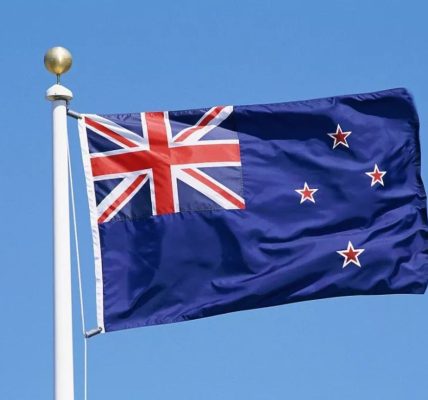Canada Scholarship Requirements – Canada is one of the top destinations for international students, offering high-quality education, diverse cultural experiences, and a welcoming environment. For many students worldwide, the opportunity to study in Canada can be a dream come true.
However, pursuing higher education in Canada can be expensive, and that’s where scholarships come into play. Canada offers various scholarships for international students, covering a wide range of academic programs. Canada Scholarship Requirements.
In this article, we will discuss the scholarship requirements for studying in Canada, including eligibility criteria, types of scholarships available, and tips on how to apply for them. Canada Scholarship Requirements.
Types of Scholarships Available in Canada
Scholarships in Canada can be broadly categorized into government-funded scholarships, university-specific scholarships, private scholarships, and external funding opportunities. Understanding the types of scholarships available is crucial in finding the best option for your educational goals.
1. Government-Funded Scholarships
The Canadian government offers several scholarships to attract international students. These scholarships usually cover tuition fees, travel expenses, living allowances, and sometimes health insurance. Some of the prominent government scholarships include:
- Vanier Canada Graduate Scholarships: This scholarship is for doctoral students and is aimed at attracting world-class doctoral students to Canadian universities. It provides a significant annual stipend for up to three years of study.
- Canada Graduate Scholarships – Master’s Program (CGS-M): This scholarship is designed for students pursuing a master’s degree in Canada. It provides funding for up to two years of graduate studies.
- Banting Postdoctoral Fellowships: These fellowships are available for international researchers who have completed their doctoral degree and wish to conduct research at a Canadian institution.
- Canadian Commonwealth Scholarship Program: This program is for students from Commonwealth countries who wish to pursue graduate-level studies in Canada.
- Ontario Graduate Scholarship (OGS): For students studying in the province of Ontario, this scholarship supports graduate students in their academic pursuits.
2. University-Specific Scholarships
In addition to government-funded scholarships, Canadian universities offer a range of merit-based and need-based scholarships to attract top talent. These scholarships may cover full or partial tuition fees and are often offered to both undergraduate and graduate students. Some examples of university-specific scholarships include:
- University of Toronto International Scholarships: The University of Toronto offers a range of scholarships, including the Lester B. Pearson International Scholarship, which covers tuition, books, incidental fees, and full residence support.
- University of British Columbia (UBC) International Leader of Tomorrow Award: This scholarship is awarded to international students who demonstrate academic excellence, leadership skills, and financial need.
- McGill University Scholarships: McGill offers a number of scholarships, including merit-based entrance scholarships for undergraduate students and various graduate scholarships for students enrolled in specific programs.
- Simon Fraser University (SFU) International Scholarships: SFU offers several scholarships, including the SFU International Undergraduate Entrance Scholarship, designed for international students entering undergraduate programs.
3. Private and External Scholarships
Several private organizations, foundations, and corporations provide scholarships for international students pursuing higher education in Canada. These scholarships are often field-specific and can be highly competitive. Some examples include:
- The Aga Khan Foundation International Scholarship Program: This program provides scholarships for graduate students from developing countries who wish to pursue a master’s or doctoral degree in Canada.
- The Pierre Elliott Trudeau Foundation Scholarships: Aimed at students pursuing doctoral studies in Canada, this prestigious scholarship supports students with an interest in research related to social science and humanities.
- The Fulbright Program: The Fulbright Program offers scholarships for graduate-level students from the U.S. and other countries to study in Canada and vice versa.
- Lester B. Pearson International Scholarship Program: This highly competitive program offers scholarships to international students at the University of Toronto.
4. Research Scholarships
Canada is home to several world-renowned research institutions, and many scholarships are available for students pursuing research-focused graduate programs. These scholarships typically support doctoral students or postdoctoral researchers. Key programs include:
- The Natural Sciences and Engineering Research Council of Canada (NSERC): Offers funding to international students who wish to conduct research in the fields of science and engineering.
- Social Sciences and Humanities Research Council of Canada (SSHRC): Provides research funding for international students pursuing graduate studies in the social sciences and humanities fields.
General Scholarship Eligibility Requirements
Although the requirements for Canadian scholarships vary based on the scholarship type and the institution, there are several common eligibility criteria that you must meet to apply. Here are the general requirements you should be aware of:
1. Academic Qualifications
- Undergraduate Programs: To be eligible for undergraduate scholarships, you generally need to have completed secondary school with strong academic results. The specific GPA or academic achievements required depend on the scholarship. Some scholarships may also require that you have specific academic qualifications or standardized test scores, such as SAT or ACT scores.
- Graduate Programs: To apply for graduate scholarships, you must have completed an undergraduate degree or equivalent. The required qualifications for graduate scholarships often depend on the specific program and field of study. For example, some scholarships may require a minimum GPA or specific coursework related to your field of interest.
2. English or French Language Proficiency
Canada is a bilingual country, with English and French as the official languages. Most scholarships require proof of language proficiency in English or French, depending on the language of instruction at your chosen university. Commonly accepted tests for English language proficiency include:
- IELTS (International English Language Testing System)
- TOEFL (Test of English as a Foreign Language)
- PTE (Pearson Test of English)
For French language proficiency, you may need to take tests such as:
- TEF (Test d’évaluation de français)
- DELF (Diplôme d’études en langue française)
3. Nationality and Residency
Many scholarships in Canada are specifically aimed at international students, which means that you must not be a Canadian citizen or permanent resident. Each scholarship may specify the countries or regions that it is available to. For example, the Canadian Commonwealth Scholarship Program is typically aimed at students from Commonwealth countries, while Vanier Canada Graduate Scholarships are open to international students from all countries.
4. Field of Study
Certain scholarships are only available for students pursuing specific fields of study. For instance, some scholarships may be geared toward students studying engineering, technology, or healthcare. Make sure that your program of study aligns with the scholarship you’re applying for.
5. Age and Academic Level
Some scholarships may have age restrictions, particularly for postgraduate programs. For example, some research scholarships are only available to students who have recently completed their undergraduate studies, or to those who are under a specific age. Others may be targeted at students who have demonstrated exceptional academic excellence or leadership in their field.
6. Other Requirements
Some scholarships may require additional materials, such as:
- Personal Statement: A written essay explaining why you want to study in Canada, your academic goals, and how the scholarship will help you achieve them.
- Letters of Recommendation: Letters from professors, employers, or mentors who can attest to your academic and personal achievements.
- Research Proposal: For research-based scholarships, you may be asked to submit a research proposal outlining the objectives of your proposed project.
- Resume or Curriculum Vitae (CV): A document detailing your academic qualifications, work experience, and any extracurricular activities.
How to Apply for Scholarships in Canada
1. Research Available Scholarships
Before applying, research the scholarships available for international students. Look for programs offered by Canadian universities, government scholarships, and private funding organizations. Be sure to check the eligibility criteria, deadlines, and application instructions for each scholarship.
2. Prepare Your Documents
Once you have identified the scholarships you are eligible for, begin preparing the necessary documents. These may include:
- Transcripts and academic certificates.
- Proof of language proficiency.
- Letters of recommendation.
- Personal statement or research proposal.
- Curriculum Vitae (CV).
3. Submit Your Application
Follow the instructions carefully for each scholarship application. Some scholarships require you to apply directly through the university’s website, while others may have a central application portal. Be sure to complete all sections of the application form and submit the required documents before the deadline.
4. Follow Up and Attend Interviews
Some scholarships may require an interview as part of the selection process. If you are selected for an interview, make sure you are well-prepared to discuss your academic background, goals, and reasons for wanting to study in Canada.
Conclusion
Scholarships in Canada are an excellent way for international students to access high-quality education without bearing the full financial burden. With a wide range of government-funded, university-specific, private, and research-based scholarships, there are plenty of opportunities for students from around the world.
The scholarship application process can be competitive, so it’s essential to meet all the eligibility requirements, prepare the necessary documents, and apply ahead of time. By doing so, you can increase your chances of receiving funding for your studies in Canada and enjoy all that the country has to offer academically, professionally, and culturally. Canada Scholarship Requirements.




